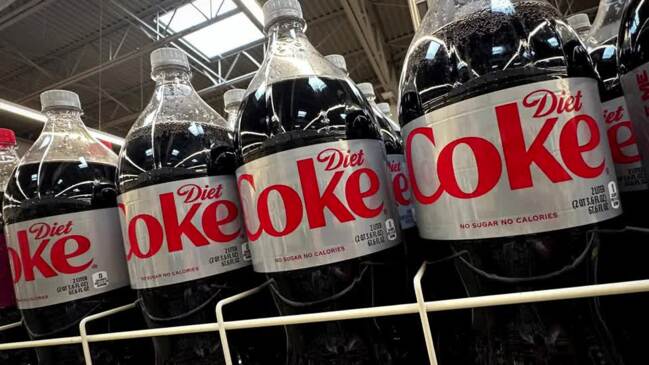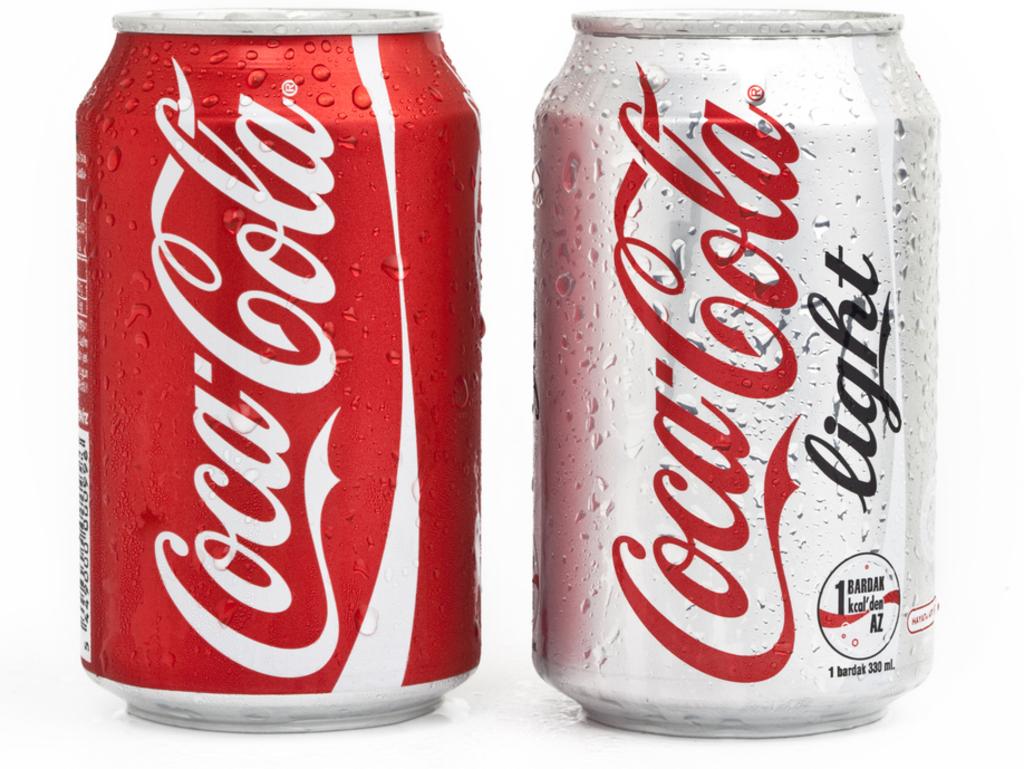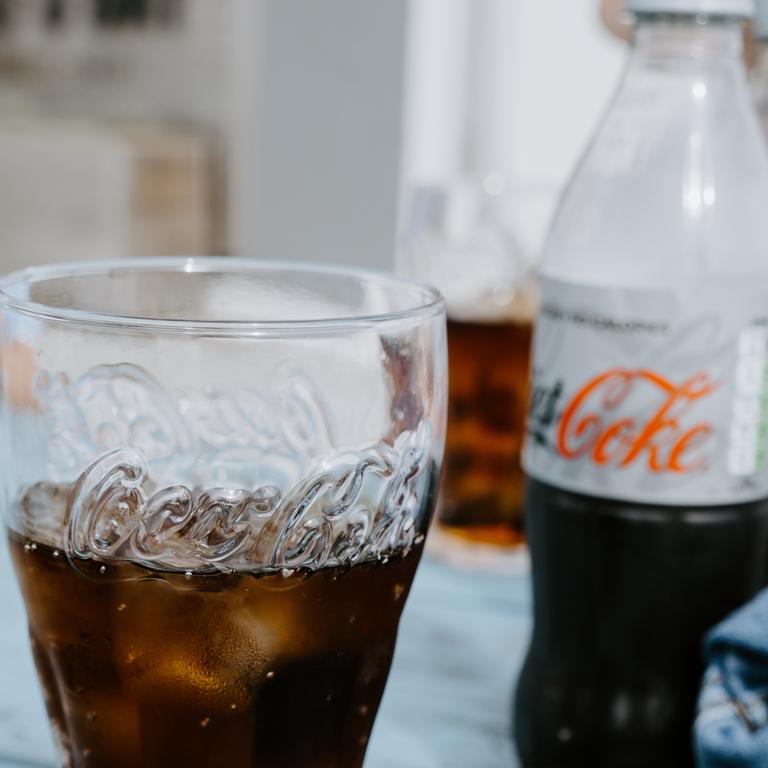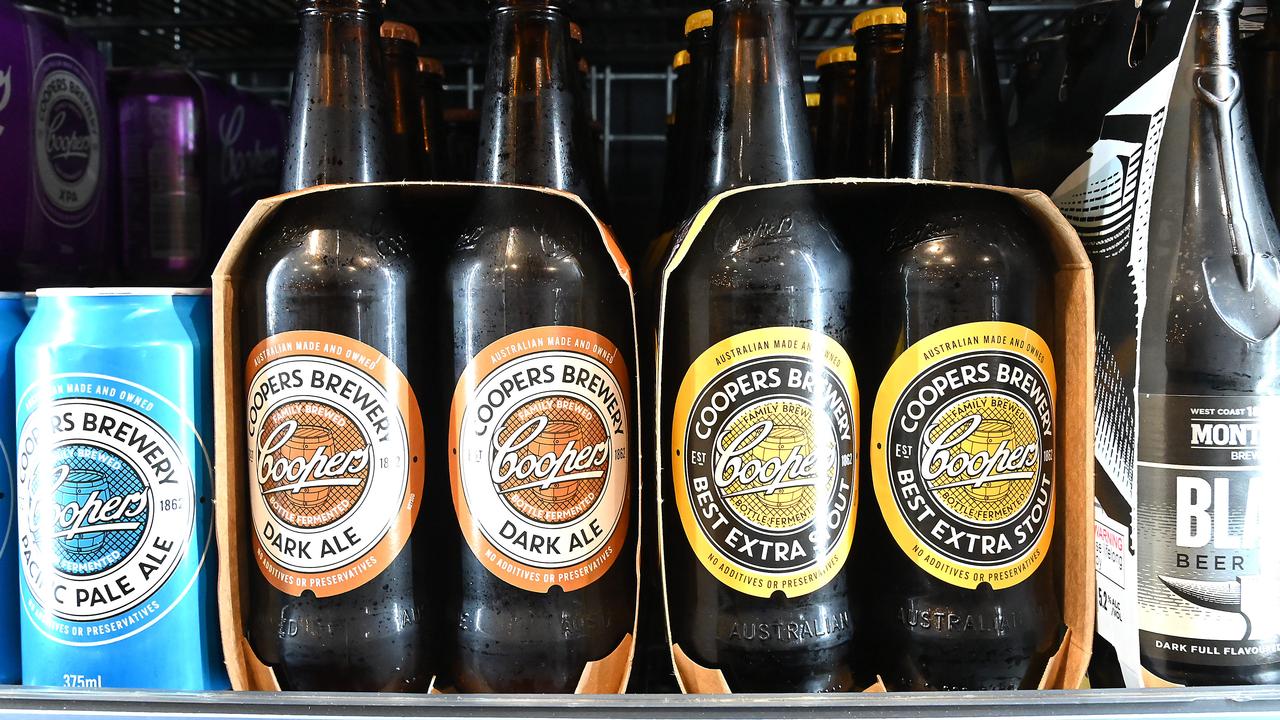Ingredient found in diet drinks a potential cancer risk, report finds
A sweetener used in low-calorie fizzy drinks such as Diet Coke is to be labelled a “potential cancer risk” by the World Health Organisation.

A common sweetener used in low-calorie fizzy drinks such as Diet Coke is set to be labelled a potential cancer risk by the World Health Organisation.
The International Agency for Research on Cancer (IARC), WHO’s cancer research unit, is poised to label aspartame as a “possible carcinogen” from July for the first time, insiders have reportedly told Reuters.
Aspartame is used in a number of products in Australia, including carbonated drinks such as Diet Coke, yoghurt and chewing gum.
The IARC ruling, finalised earlier this month after a meeting of the group’s external experts, is intended to assess whether something is a potential hazard or not, based on all the published evidence.
It does not take into account how much of a product a person can safely consume.
But the findings won’t officially be released until July, a spokesperson for the WHO’s International Agency for Research on Cancer, said.

However the spokesperson said it would be “the first fundamental step to understand carcinogenicity” of the common ingredient.
Separate advice on how much is safe to consume will also be issued by a WHO expert committee on food additives known as JECFA.
Both decisions will be announced on July 14, sources say.
Businesses and regulators fear holding both processes at around the same time could be confusing, The Independent reported.
Nozomi Tomita, of Japan’s Ministry of Health, Labour and Welfare, sent a letter to the WHO in March asking “bodies to co-ordinate their efforts in reviewing aspartame to avoid any confusion or concerns among the public”.
The letter also pleaded for the conclusions of both bodies to be released on the same day, as is now the case.
The Japanese mission in Geneva, where the WHO is based, did not respond to a request for comment, Reuters said.

It comes after the WHO issued guidelines advising people not to drink sugar-free sweeteners to lose weight.
The chemicals may also increase the risk of heart disease and type 2 diabetes, the international agency said.
Aspartame has been ruled safe to consume within daily limits since 1981 by JECFA.
It has been studied for decades, with research last year showing people who consume larger amounts of sweeteners including aspartame were at a slightly higher risk of cancer.
“There has been reports about aspartame in animals being linked to cancer, although some have criticised this work,” Dr Duane Mellor, a nutritionist at Aston University in Birmingham, told The Sun.
“It has been associated with increased risk of some cancers in population studies.
“This seems to be linked to the methanol — this also exists naturally in fruits — which is released when it is broken down, as the other two products of its breakdown are amino acids naturally found in meat, dairy and other sources of protein.
“For it to be classed as a possible carcinogen by IARC, it has to have sufficient evidence in experimental animals but not necessarily data in humans.”

Professor Lawrence Young, an oncologist at the University of Warwick, explained there had been controversy around aspartame consumption for some time.
“Many different studies have found no clear association or a very slight effect which is complicated by other underlying conditions such as diabetes,” he told the publication.
“Like many of the risks associated with diet and disease, this provides a warning that we need to be cautious about over-consumption of artificial sweeteners as we do excess eating of processed meat and other types of junk food.”
However, some experts have questioned the leaked rulings, claiming the sweetener – which has been used for decades – is safe.
“Aspartame has proven to be a safe tool to reduce calories and sugars in the diet and is one of the most extensively studied ingredients with over 40 years of high-quality science supporting its safety,” Dr John Sievenpiper, of the Department of Medicine at University of Toronto, said.
“The best available evidence from large population studies shows that low and no-calorie sweeteners as a replacement strategy for added sugars is associated with reductions in important public health outcomes such as obesity, cardiovascular disease and death.”
Frances Hunt-Wood, of the International Sweeteners Association (ISA), said: “IARC is not a food safety body.
“The JECFA is currently conducting a comprehensive food safety review of aspartame and no conclusions can be drawn until both reports are published.
“Aspartame is one of the most thoroughly researched ingredients in history, with over 90 food safety agencies across the globe declaring it is safe, including the European Food Safety Authority, which conducted the most comprehensive safety evaluation of aspartame to date.”
Aspartame is one of the most commonly used artificial sweeteners in Australia.
While there have been concerns around whether the sugar-free alternative can cause cancer, weight gain, obesity, type 2 diabetes or cardiovascular problems, government food regulators have repeatedly found artificial sweeteners to be safe, NSW Health states.






